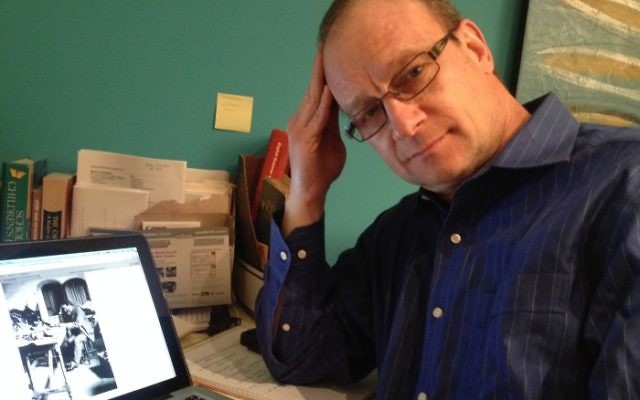Go See What the Fuss is All About
For those who have not been, let this be the year they visit Israel and see its high-wire act for themselves.
Dave Schechter is a veteran journalist whose career includes writing and producing reports from Israel and elsewhere in the Middle East.
At the end of a Passover seder, those still at the table declare “Next Year in Jerusalem!” usually with little intention of fulfilling that pledge. In this way, Israel remains as much or more an ideal than a place.
Indeed, most American Jews have never stepped foot in Eretz Yisrael, that “land of milk and honey” or “the only democracy in the Middle East,” or, in the words of storyteller Noa Baum, “a land twice promised.”
Israel is a nation birthed in the aftermath of the worst of humanity’s inhumanity, a country founded by Ashkenazi Jews that now moves to a Mizrachi beat, and a headline that cannot but fail to convey the complexity of the news that follows.
The desire of many American Jews that Israel be “a light unto the nations” often runs into the reality of Israel as a nerve-wracking high-wire act without a net. Spend enough time there and you can almost hear the tension humming in that wire.
Security threats are an unceasing source of stress. (As I write this, Israel is retaliating against targets in Gaza after rockets fired from Gaza struck populated areas in Israel.) Added to that in recent months has been the divisive and polarizing campaign in advance of Israel’s April 9 election of a new Knesset, and in turn, the selection of a prime minister.
Only a fraction of American Jews probably can name a living Israeli politician other than Prime Minister Benjamin Netanyahu. Considering that Netanyahu has been prime minister since 2009 (and also from 1996 to 1999), that would not be surprising.
It suggests, however, that American Jews – whatever their degree of attachment to the “Jewish homeland” – are ill-equipped to discuss the players and politics behind this election.
Even for those who follow Israeli politics from afar, keeping track of the game is difficult. Teams merge and break apart as alliances shift in the name of political expediency.
Israeli journalist and author Yossi Klein Halevi, a favorite of this column, recently explained in The Atlantic magazine that, “Israeli politics is no longer a contest between right and left, but between right and center.”
The left, Klein Halevi said, is a ghost, albeit one that makes a convenient target for Netanyahu. He faces his toughest political challenge in years while corruption indictments await him post-election.
The tone of the Israeli campaign, with allegations of corruption and moral turpitude, countered by accusations of a biased judiciary, leftist traitors and fake news, may sound vaguely familiar to Americans.
American Jews are familiar with the complaint by Israelis (not all of them, to be fair) who say: You don’t live here, you don’t pay taxes here, you don’t serve in the IDF, you don’t understand the pressures of life here, so don’t preach to us about what we should or should not do.
When it comes specifically to the Knesset election, they are right.
Israelis – citizens of a sovereign nation, including the 21 percent who are Arab – will decide the future course of their country. American Jews may care, even care deeply about what happens in Israel, but as Americans, they must be spectators as Israelis go to the polls.
I say “specifically to the Knesset election” because if American Jews are expected to maintain an emotional connection to Israel, to donate money to Israeli causes and lobby elected officials in support of U.S. aid, they have every right to voice their concerns about religious pluralism, democratic institutions, and relations with the Palestinian Arabs, among the issues – and have them taken seriously.
I’ve told this story before: After returning from living in Israel for a couple of years in the mid-1980s, we were invited to speak at a Jewish Federation event in my wife’s Midwest hometown. My suggestion that those who had not been to Israel skip writing a check to Federation and take themselves to Israel, “to see what the fuss is all about,” did not go over well with our hosts.
For American Jews who care about Israel but have not been there, at this year’s seder, when you say “next year in Jerusalem,” know that there is much to be gained by seeing the geography behind the headlines, by meeting and talking with the people who walk that high wire, navigating between ideals and reality.




comments